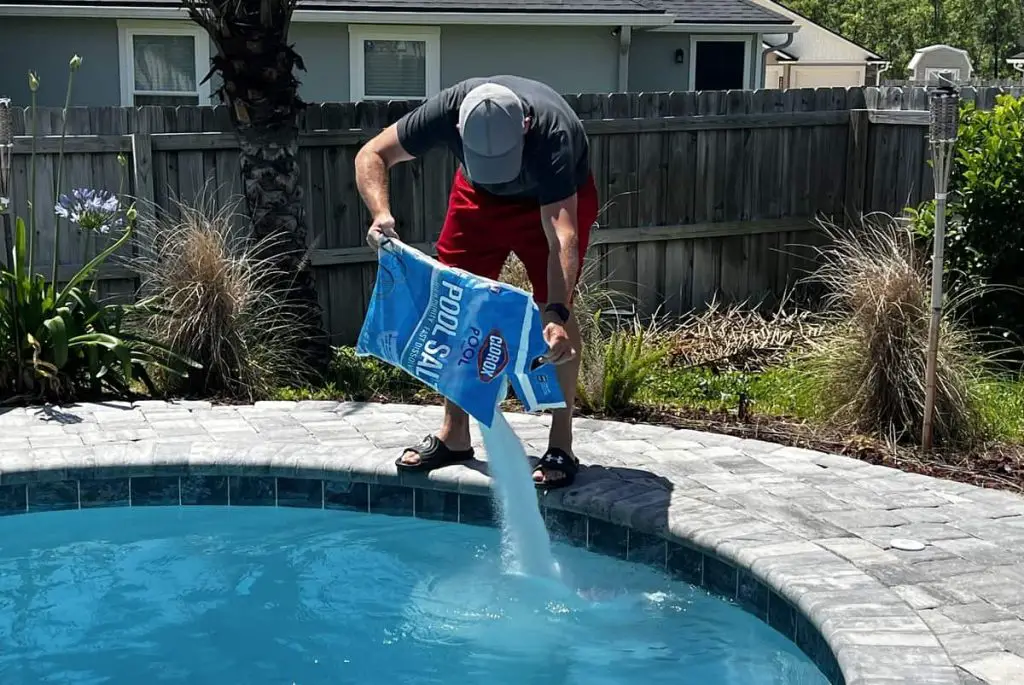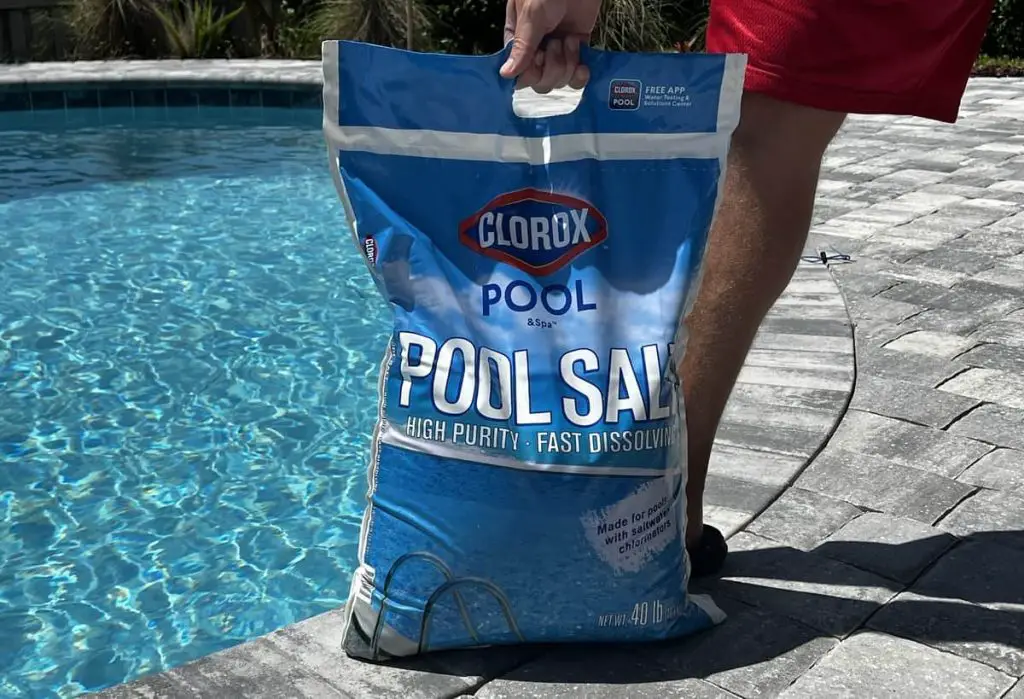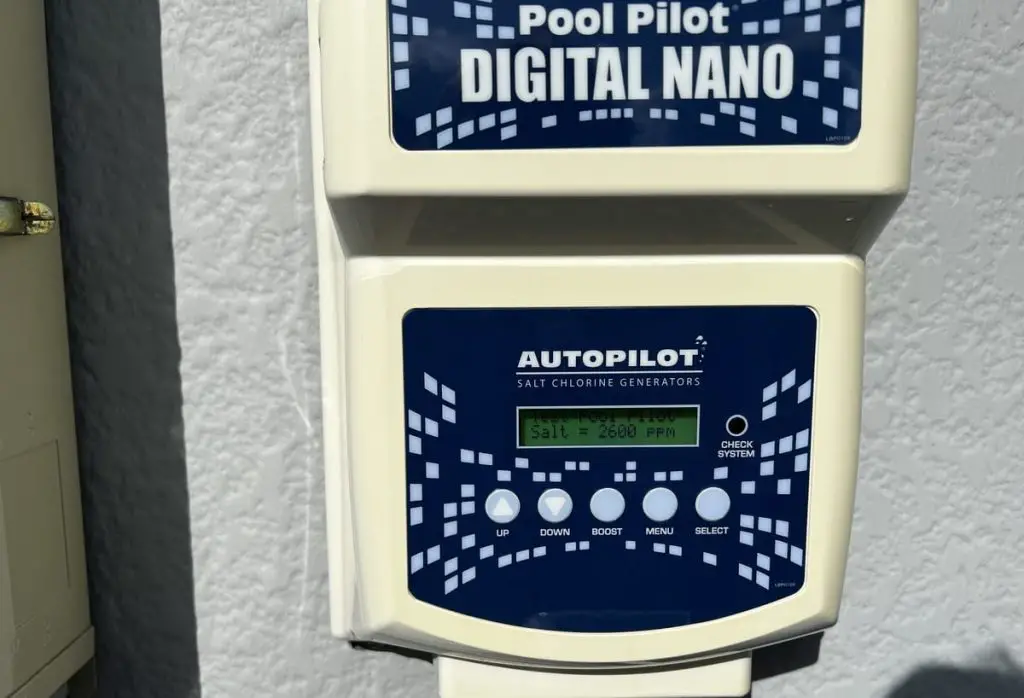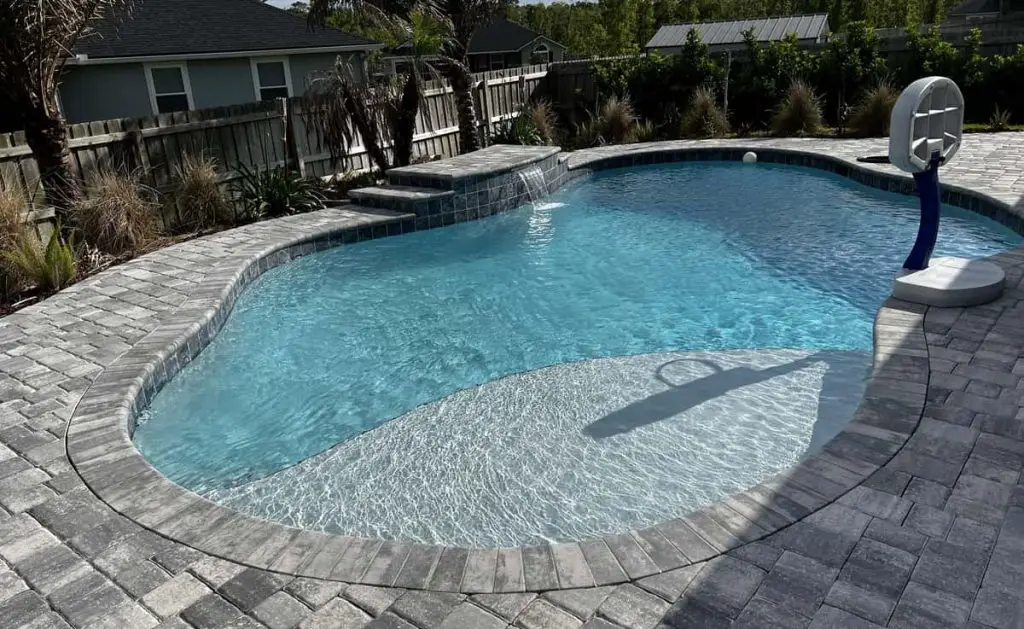As the weather warms up, everybody looks forward to a cool dip in the pool. Having a pool at home certainly has its benefits, but chlorine pools can require a lot of maintenance. You may have heard about adding salt to your chlorinated pool, but is this a good idea?
You can safely add salt to a chlorine swimming pool, but the salt should be as pure as possible and without additives. Adding salt to your chlorine pool will allow you to enjoy some of the benefits of a saltwater pool, like a silkier water feel and softer skin.
Understand that simply adding salt to your chlorine pool will not replace the need for chlorine. For details on why that is, and to learn about the benefits of adding the right salt to your chlorine swimming pool, I encourage to check out the rest of this article!

Benefits of Adding Salt to a Chlorine Pool
Adding salt to your chlorine pool increases the silkiness of the water, but this feeling is subjective. It can also increase your buoyancy in the water, allowing for a more satisfactory floating experience.
However, it’s important to note that your pool will still require chlorine to remain germ-free if it does not have a salt-chlorine generator like a saltwater pool.
How To Add Salt to Your Chlorine Pool Safely
Most sources recommend adding salt to the deepest end of your pool and waiting at least 20 minutes to an hour before swimming. It is not unsafe to swim while the salt is still dissolving, but waiting allows the pump to process the salt more easily.
What Kind of Salt Can You Use?
You must use salt that is at least 99.4% pure sodium chloride, but the purer, the better. The salt should not contain any rust-free agents or other additives. You can also use the salt typically sold for use in water softeners, otherwise known as solar salt.

Solar salt usually comes in a pellet or tablet form and may take longer to dissolve in your pool.
You can also purchase salts made specifically for pools at your local pool supply store. These salts are not very different from solar salt, but they are typically more expensive. They may also dissolve more quickly in your pool.
How Much Salt Should You Add?
Salt concentration in ocean water is over 35,000 ppm (parts per million). To feel the benefits of salt in your pool, you’ll only need to add less than a tenth of the amount found in ocean water.
You should add enough salt to your chlorine pool to reach a concentration of 3,200 ppm. It is safe as long as you keep it within 2,700 – 3,500 ppm.
Some modern pools have a control panel where you can find the salt content measured. If your pool does not have a self-reading system, you’ll need to measure the salt content yourself.

To test the amount of salt in your pool, you’ll need to purchase saltwater test strips from your pool supplier.
You can also purchase test strips online, like these AquaChek Salt Test Strips from Amazon.com. They are easy to use as you can simply dip them in your pool water and then remove it right after. The product guarantees accurate results after just a few minutes.
Can You Add Too Much Salt?
It is best not to add too much salt to your chlorine pool. At content levels higher than 6,000 ppm, salt can cause corrosion of your pool. It is always better to start light, test the pool water, and add more salt if needed.
If you’ve added too much salt to your pool, especially if the amount exceeds 6,000 ppm, it’s best to dilute the salt content to protect your pool and avoid an extremely salty water taste.
To do this, you’ll need a pump to remove water from the pool and a source of fresh water, like a garden hose, to refill. Once full, test the water again and repeat until the salt content falls near the ideal range of 2,700 – 3,500 ppm.
Saltwater Pools vs. Chlorine Pools
Have you ever wondered how saltwater pools can sanitize the water without adding chlorine? While it’s perfectly safe to add salt to your chlorine pool, this is not the same thing as having a saltwater pool.
The Chemistry of Saltwater Pools
Sodium chloride forms when sodium and chlorine molecules are ionized, and the two molecules attract each other because they share an electron. This is known as an ionic bond.
Saltwater pools have a special salt chlorine generator (SCG) system that converts sodium chloride (NaCl) into hydrochloric acid (HCl) and sodium hypochlorite (NaClO), which sanitize the water.
The resulting available chlorine will kill any bacteria it contacts in the pool water. In other words, saltwater pools still use chlorine, but instead of needing chlorine added to the water, the SCG system generates its chlorine from salt.

Benefits and Disadvantages of Saltwater Pools
You may wonder why some people prefer saltwater pools to the more common chlorine pool. These are some of the possible benefits of a saltwater pool:
● Silkier water feel.
● Lower yearly chemical cost.
● Safer for children and pets.
● Requires less general maintenance.
● Requires owner to stock fewer chemicals.
Of course, with these benefits come a few disadvantages:
● Higher installation cost than chlorine pools.
● Uses more electricity.
● May damage concrete, metal, furniture, and other pool features over time.
● Broken pumps require professional repair.
If you find yourself wishing you had a saltwater pool, it is possible to convert a chlorine pool to a saltwater pool by purchasing a saltwater generator. You can perform the water transition yourself, but generator installation is best left to the professionals.
Conclusion
Overall, it is perfectly safe to add salt to your chlorine pool, and you will likely be able to feel the benefits of salt in the pool water. However, it’s best to keep salt content within a mild range of 2,700 – 3,500 ppm to avoid salty-tasting water and damage to your pool.
